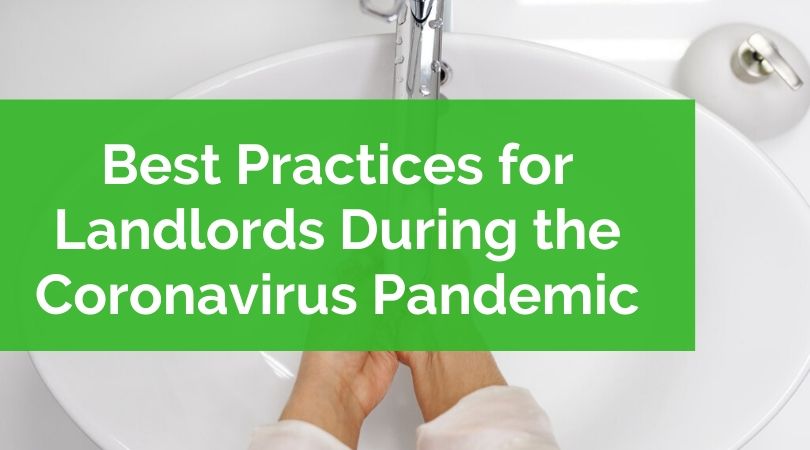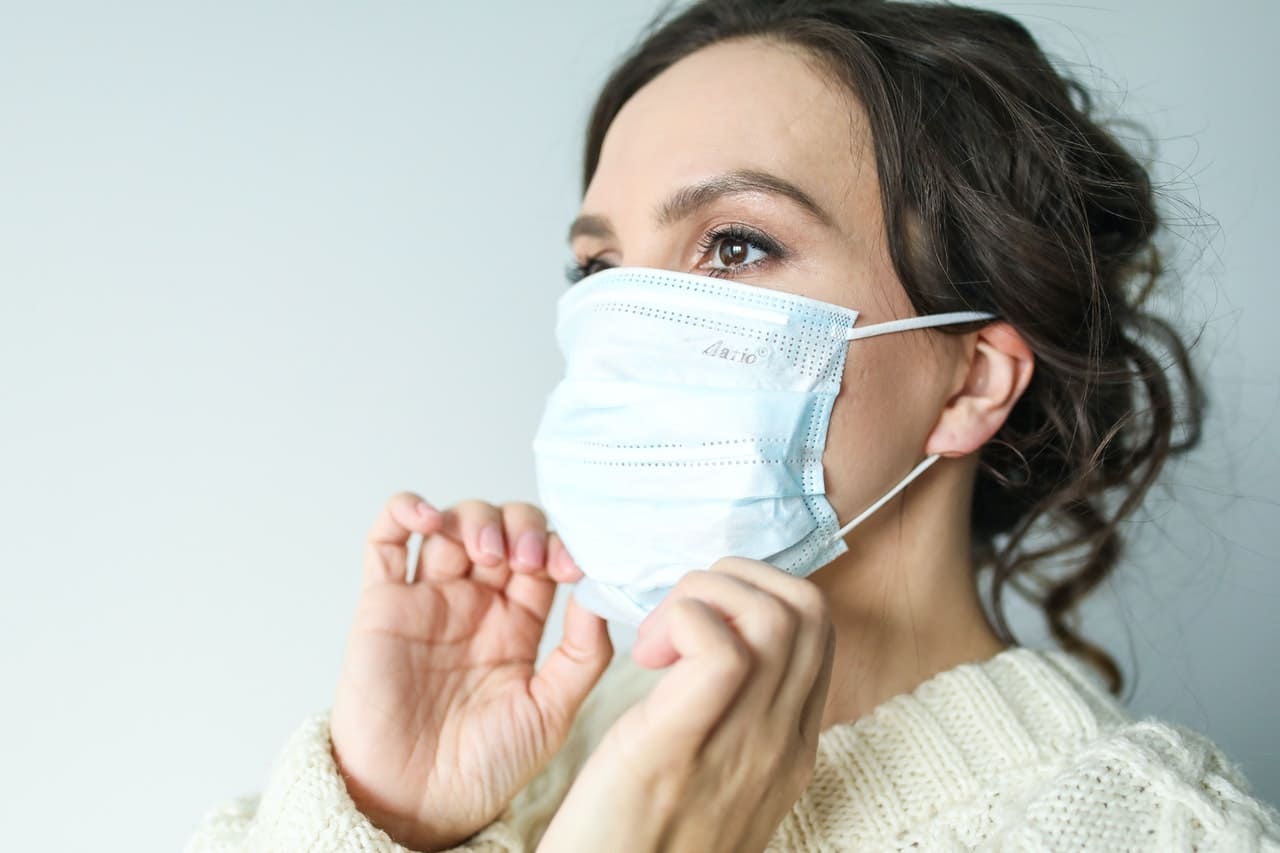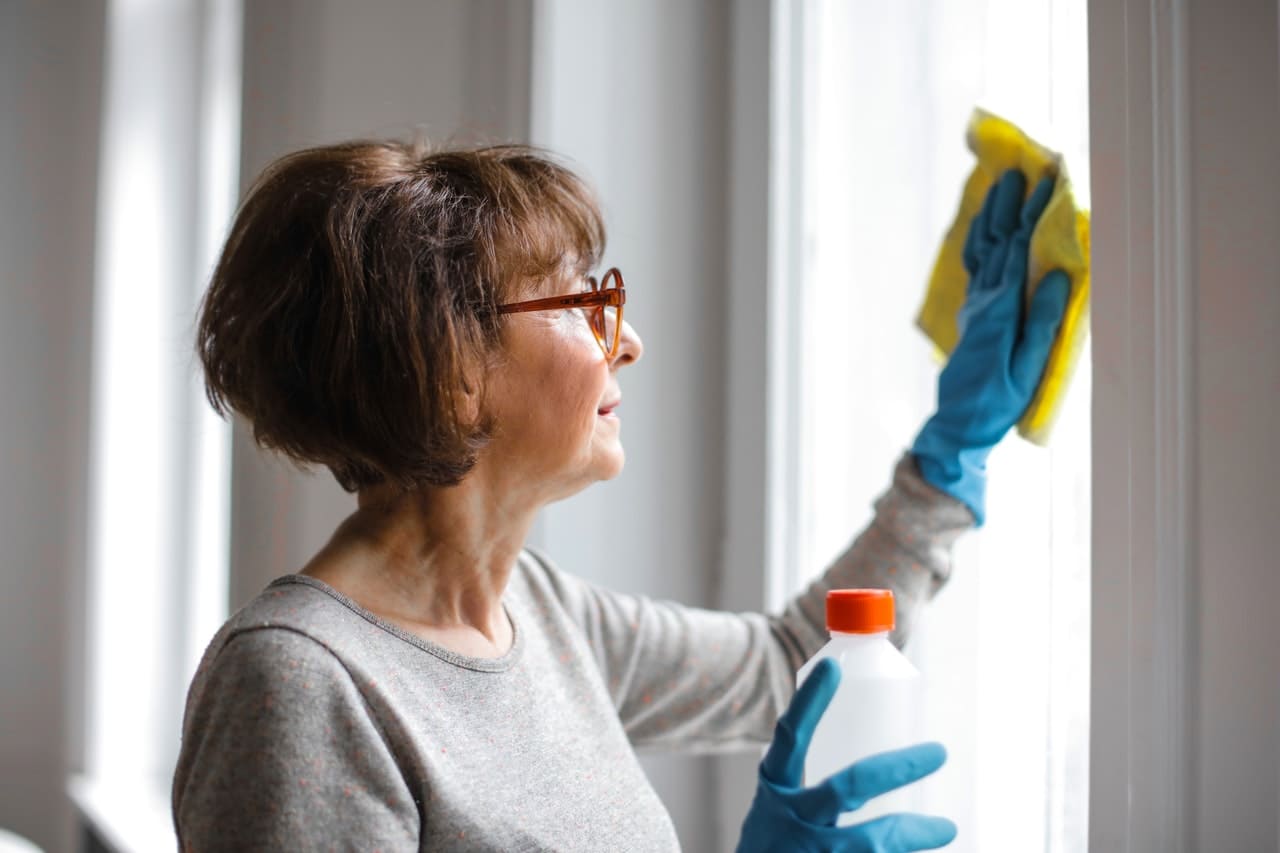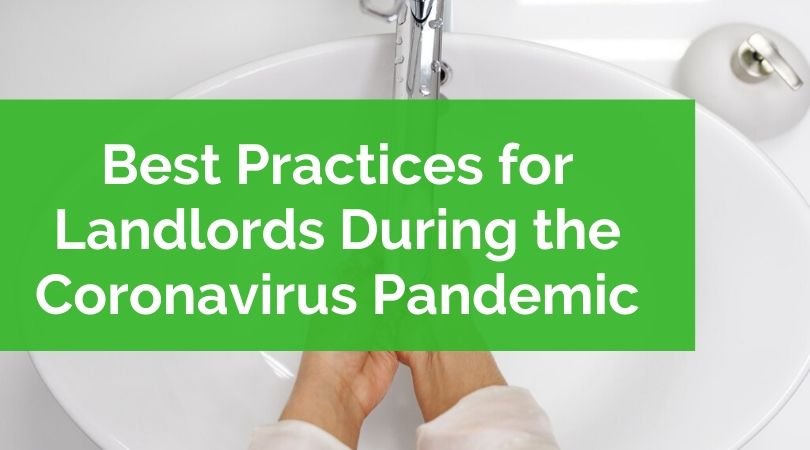
As a landlord, it’s easy to feel overwhelmed in the wake of COVID-19. Previously, you might have been performing multiple tasks for your property, such as marketing, tenant screening, rent collection and property upkeep.
Today, you may find yourself doubling your efforts in property maintenance to keep the virus contagion at bay. You should also find yourself stepping up the sanitary practices to prevent further spread.
COVID-19, quickly spreads from person-to-person contact. As a responsible landlord, you want to guarantee your tenants’ safety and prevent a contagion.
You understand that the risk increases in a multifamily building where a high traffic of people live within close quarters. However, there is also a risk in any single-family property. Thus, it’s vital that you set up the best practices during this challenging pandemic period.
For a start, you can follow these useful steps to take better care of your tenants. It will also shield you from the worst consequences of the situation.
Pay Attention to Official Sources of Information
It is important to stay informed and follow official sources of information.

To avoid misinformation, it’s crucial to get your information from valid sources, such as the Centers for Disease Control and Prevention (CDC) and the World Health Organization (WHO) websites. There’s a constant influx of information that may lead to information fatigue. Thus, it’s important to distribute factual information.
Currently, research and information release is ongoing, so you must be constantly updated. Your duty is to share the right information to your tenants that you can send through email, notices or flyers. Frequent reminders to keep practicing good hygiene are very helpful to your tenants.
Here are examples of reminders that tenants must follow to prevent a COVID-19 spread:
For a minimum of 20 seconds, make it a habit to wash your hands frequently. As well, it’s important that you clean surfaces and objects you have touched that may have been in contact with others. Inadequate sanitation practices will quickly lead to rapid infection, otherwise.
Protect yourself by using alcohol and hand sanitizers that contain at least 60% alcohol.
Wearing masks is encouraged, especially when you’re going out to get essential supplies. A mask protects you from droplets that an infected person exposes when he sneezes or coughs.

Avoid going out or being in close proximity to others when you’re sick.
Avoid touching your face with your hands to minimize the risk of infection.
Practice good hygiene by regularly cleaning and disinfecting your unit.
If you feel unwell and experiencing fever, cough and fatigue, contact a doctor to arrange a medical checkup.
Communicate Openly
Open communication is encouraged between the landlord and tenants during this critical time. It would help further if you have a communication plan to address scenarios. Outline the best actionable steps you will undertake when a virus outbreak occurs in your property.
Consider the situation if you have an infected tenant. Detail the additional hygienic practices you will implement. Having a concrete plan reassures your tenants that you are prepared in advance.
Here are further messages you can share with your tenants:
Share your proactive initiatives to reduce the presence of the virus in your premises, thereby keeping your tenants from being infected. Inform them that you’re disinfecting the hallways, elevators and other shared common areas.
Reassure them that you’re constantly updating and tracking the latest developments. Whatever findings you’ll learn, they will be kept in the loop.
Explain the reasons behind closed facilities and the new policies you have implemented to ensure social distancing is observed.
Share relevant information and resources that will help tenants from contracting the virus.
It’s best to constantly communicate and update your tenants to ease their worries. If there are any inquiries, make yourself available to quickly respond to their questions and share important information. If there are added protocols, make sure that they are properly disseminated and everyone in the premises is given sufficient notice.
Establish Hygiene Protocols
A landlord has additional property maintenance duties to perform. It’s recommended to regularly practice disinfection of the premises and common facilities like the elevators.

Surface areas such as handrails must also be paid attention to, as this is where the virus can reside for longer hours and become a source of virus spreading. If you have a tenant that recently traveled or experienced contact with an infected person then make sure he practices a 14-day self-quarantine to protect other tenants in the building.
Review Leases and Legal Obligations
Check leases and your obligations, such as construction and renovation projects that might be affected at this time. Consult a lawyer if you find yourself in a complicated legal situation.
As a landlord, you have a set of responsibilities to fulfill and it may be challenging to hold up your end of the bargain during this crisis. Nevertheless, make sure to follow the state laws to diminish legal ramifications.
Keep Reviewing and Adapting Plans
The cure for COVID-19 is yet to be discovered at this point. As a landlord, your objective is to prevent a widespread contamination in your property.
Continue implementing measures that will keep your tenants safe. Discourage visits from people who don’t live in your property. Remain calm and flexible in this challenging period and enforce policies for everyone’s safety.
Nobody can predict when this crisis will end. As a landlord, you might experience the toll of stress even more. This is understandable since along with installing safer and stricter protocols, you’re also managing other functions, such as rent collection.
If you find that you need a professional team to take over the growing responsibilities at this time, contact Income Property Management We are knowledgeable about the state laws and have solid experience in property management. If you're buying your first investment property, we can help with that too.
We have contingency plans in place for different scenarios that might occur in your property as the pandemic infections escalate further. We are competent, skilled and have a well-trained team to address today’s challenges.






